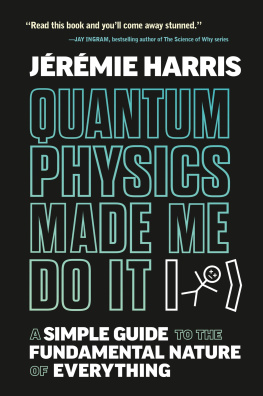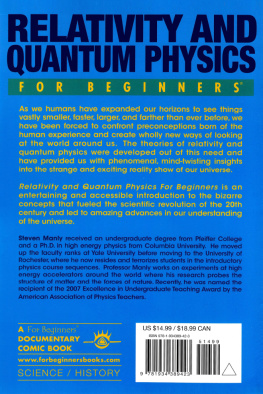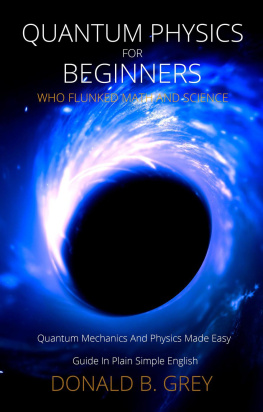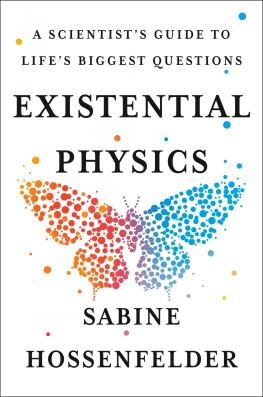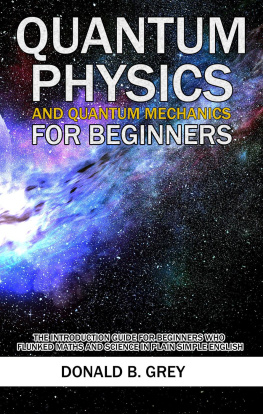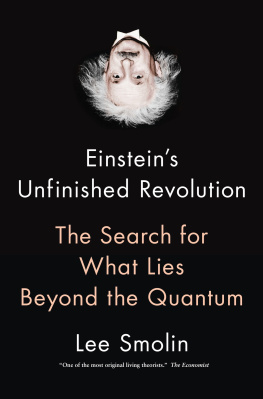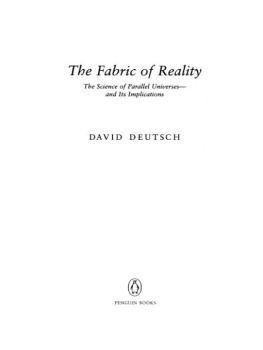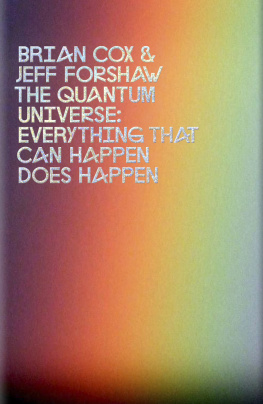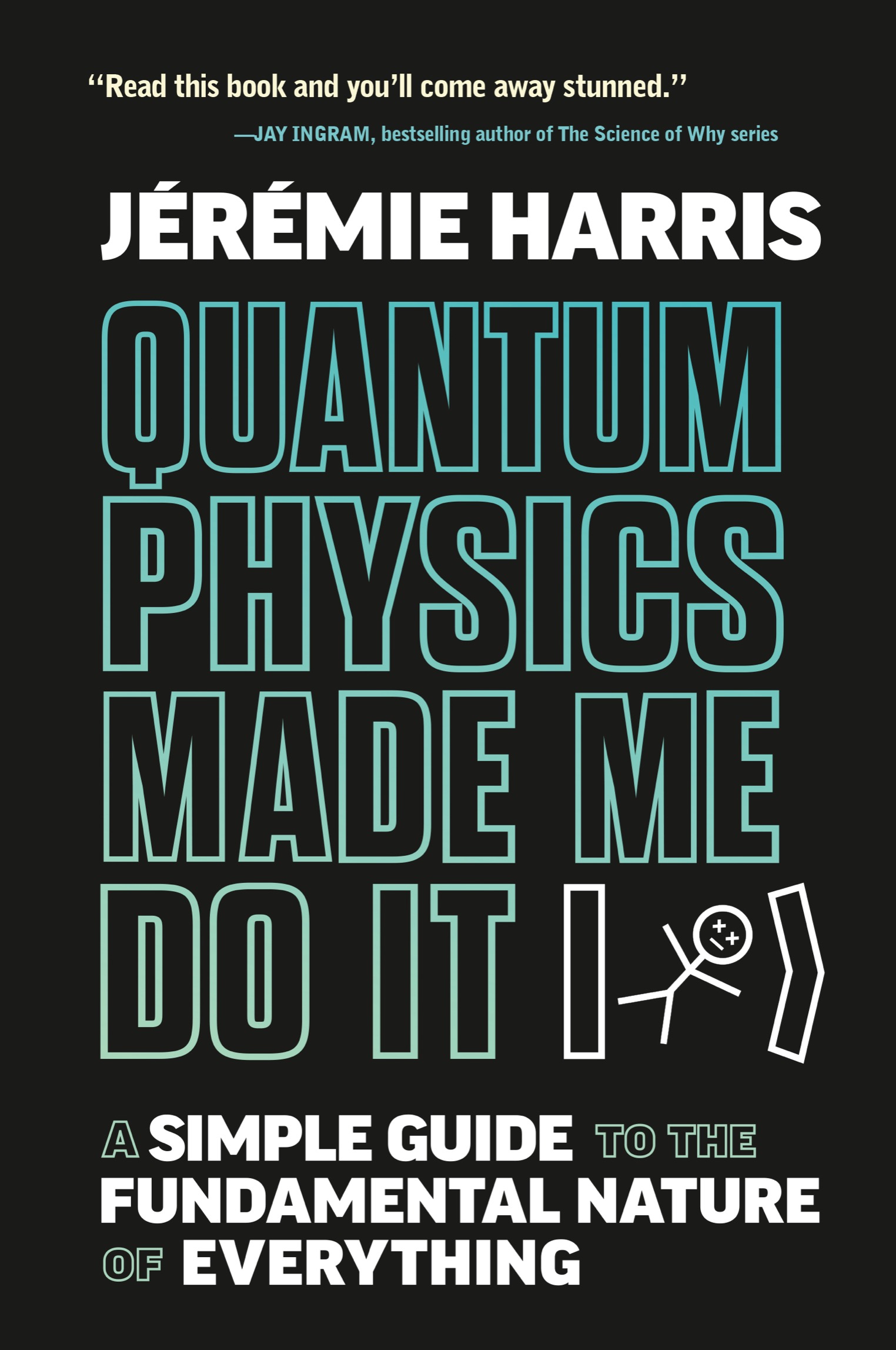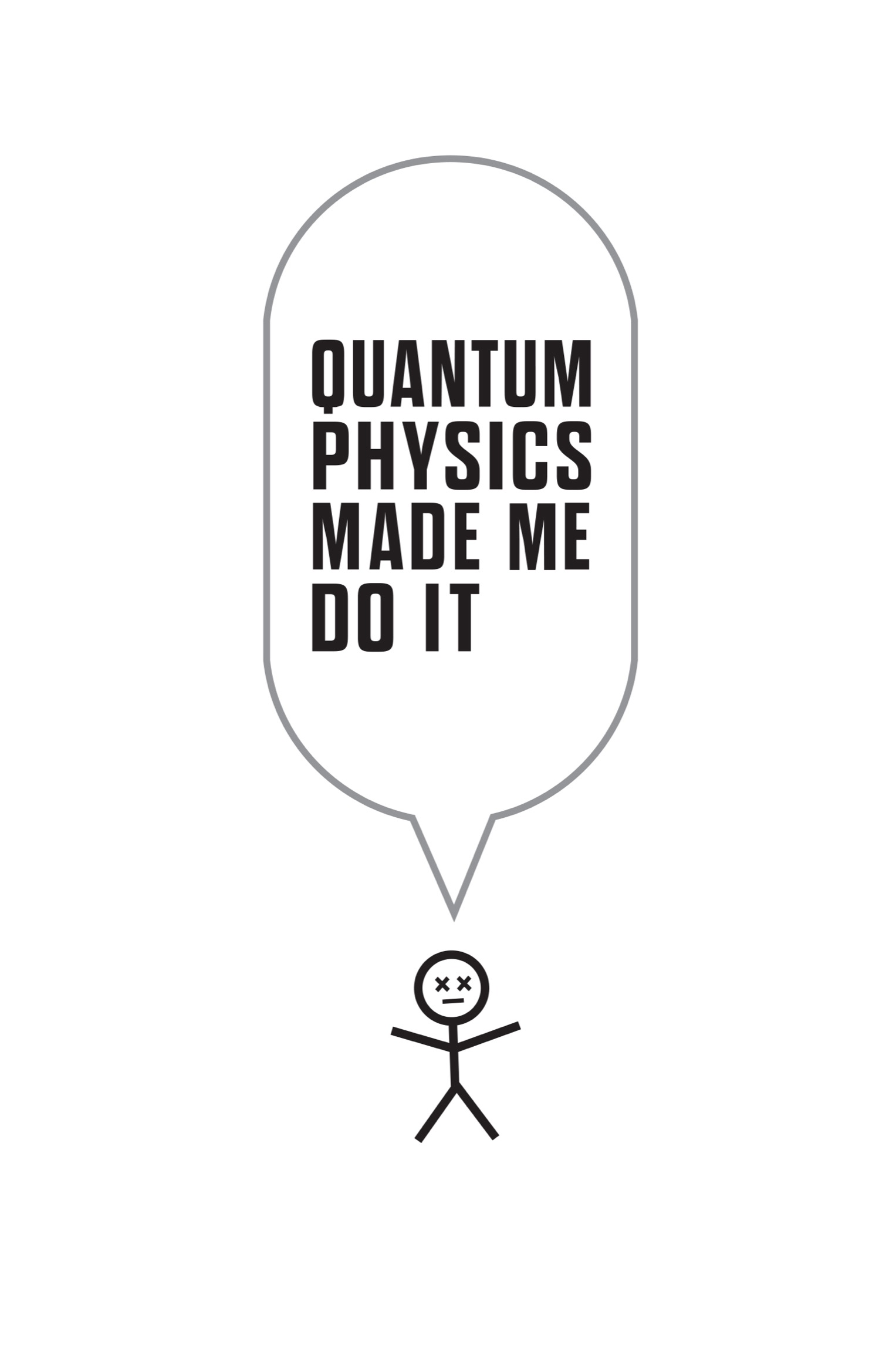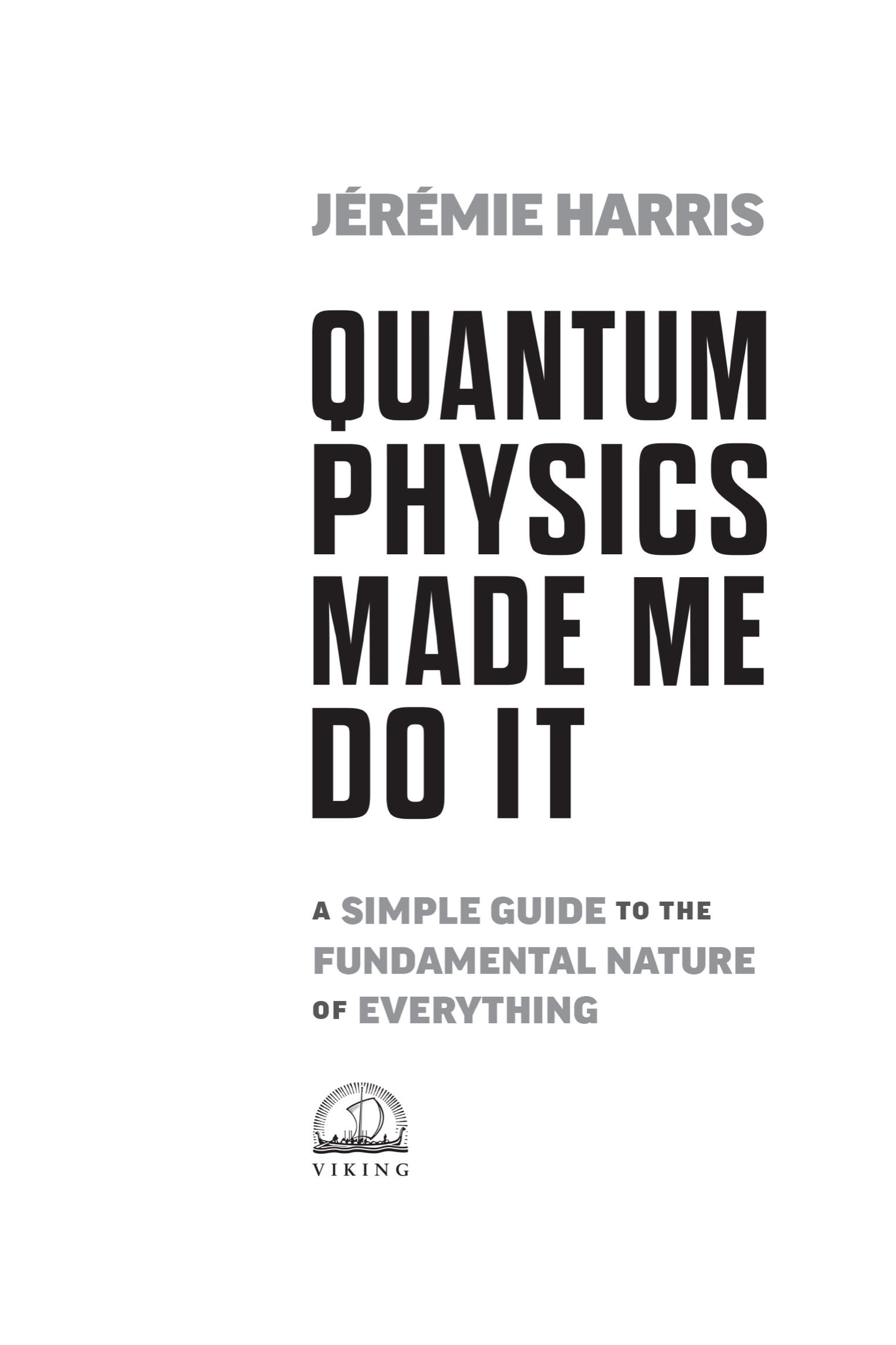Contents
Landmarks
Print Page List
VIKING CANADA
an imprint of Penguin Canada, a division of Penguin Random House Canada Limited
Canada USA UK Ireland Australia New Zealand India South Africa China
First published 2023
Copyright 2023 by Jrmie Harris
Kets diagrams by Jrmie Harris
All rights reserved. Without limiting the rights under copyright reserved above, no part of this publication may be reproduced, stored in or introduced into a retrieval system, or transmitted in any form or by any means (electronic, mechanical, photocopying, recording or otherwise), without the prior written permission of both the copyright owner and the above publisher of this book.
www.penguinrandomhouse.ca
LIBRARY AND ARCHIVES CANADA CATALOGUING IN PUBLICATION
Title: Quantum physics made me do it : a simple guide to the fundamental nature of everything / Jrmie Harris.
Names: Harris, Jrmie (Scientist), author.
Identifiers: Canadiana (print) 20220232245 | Canadiana (ebook)2022023227X | ISBN 9780735244139 (hardcover) | ISBN9780735244146 (EPUB)
Subjects: LCSH: Quantum theoryPopular works.
Classification: LCC QC174.123 .H37 2023 | DDC 530.12dc23
Book design by Andrew Roberts, adapted for ebook
Cover design by Andrew Roberts
a_prh_6.0_143040598_c0_r0
To my mom, who taught me how to think.
To my dad, who taught me how to write.
To Ed, who taught me how to do both at the same time.
To Sarina, who taught me how not to lose my mind when I do.
Contents
Introduction
Quantum mechanics is the astonishing science of the microworld. It describes tiny particles, like atoms and molecules, that can perform logic-defying acrobatics, finding themselves in many places at the same time or spinning in two directions at once. Its a dizzying story that pulls in everything from consciousness and parallel universes to free will and eternal life, and it offers us the only scientific lens we have for understanding what human beings fundamentally are.
Its a weird field, run by weird people. And sometimes, those weird people throw parties.
Back in 2014, I went to a party that was hosted by an eccentric, highly respected quantum physicist. Lets call him Bob, because that was his actual name.
Physics has its rock stars, and Bob was one of them. By the time I started working in his lab, hed written a bestselling textbook, made major contributions to laser theory, and carried out famous experiments exploring quantum properties of light. Hed even won a career award named after a Prussian aristocrat, whichat least in physicsis how you know youve really made it.
I dont mind telling you that Bob taught me a thing or two about physics during my time in grad school. But at this particular party, the tables were turned.
Huddled around me were Bob, one or two other rock star researchers, and half a dozen greasy-haired graduate students, all staring intently at the piece of paper before me, utterly transfixed by what Id just finished doodling. They were some of the most amateurish stick figures youve ever seen.
So thats it, I said. Thats why some people think quantum mechanics makes parallel universes possible.
Not to toot my own horn here, but the crowd was impressed. That... makes a lot more sense than I expected it to, one of them said. I cant believe no one ever showed me that! This theory isnt nearly as crazy as I thought. Even Bob was mind-blown by the whole thing.
Over the next few weeks, I watched as many of my labmates started to take the idea of parallel universes more seriouslysomething theyd previously dismissed as pure science fiction. Some even took it on board as their new favourite way of thinking about quantum mechanics. Theres nothing like the zeal of a new convert.
So how is it that we find ourselves in a world where some of our most accomplished physicists are liable to have their brains melted by a twenty-minute conversation with a schmuck like me? How did these great scientists get to a point where their sense of what exists and what doesnt is so brittle that it can be shattered by a couple of stick figures doodled by a half-drunk twentysomething?
I think the answer has something to do with the reason the Pope probably doesnt know much about Scientology. When you think you know the truth already, you generally dont go looking for other versions of it. And you tend to become weirdly confident that you dont need to, which is why popes have martyrs, Scientology has Tom Cruise, and different perspectives on quantum theory have their own zealots too.
Maybe that shouldnt be too surprising, though. Quantum mechanics is a lot like religion. Its a story about the universe, how it was created, and where it might go from here. It tells us about who and what we are, and believe it or not, it even has something to say about what happens to us when we die.
And like religion, quantum mechanics isnt without controversy. Quantum mechanics is a wildly successful theory, but Ive seen physicists get into literal shouting matches arguing about what exactly quantum physics tells us about the way the universe works. Some say it paints a picture of infinite parallel universes, some say it carves out a special place for consciousness in the laws of physics, and some say it describes a universe whose future is predetermined, in which our fates and futures were all sealed from the moment of the Big Bang itself.
But any way you slice it, quantum mechanics is the natural extension of a story of human self-understanding that began tens of thousands of years ago. And when you think of it that way, isnt it a shame that I cheapened it by turning it into a party trick?
Speaking of nerd parties, I should tell you about another one I attended a few months before that evening at Bobs.
It was a packed two-hundred-seat lecture hall in the University of Torontos physics building. But we werent there for a physics seminar. We were there to watch a Christian physicist with a cognac-smooth baritone talk about why science supposedly points to the existence of God. Lets call him Kirk, because that was also his real name.
Kirk did not dig parallel universes, let me tell you. As far as he was concerned, the only sensible way of thinking about quantum mechanics was one that centred on human consciousnessand which just happened to fit neatly within his religious worldview. How convenient, I thought, getting all huffy in my seat, that the picture of quantum mechanics you find the most compelling just happens to reaffirm all your prior beliefs.
I came home all wound up and ranty from Kirks lecture, so I started leafing through textbooks and scrolling through Wikipedia pages to find counterarguments I could throw at him the next time he gave a talk. I went further and further down one rabbit hole after another trying to find my angle. But every time I thought I had somethinga term that was being misused, or a baseless claima bit more digging turned up a not-so-terrible justification. An hour turned into two, then three.

